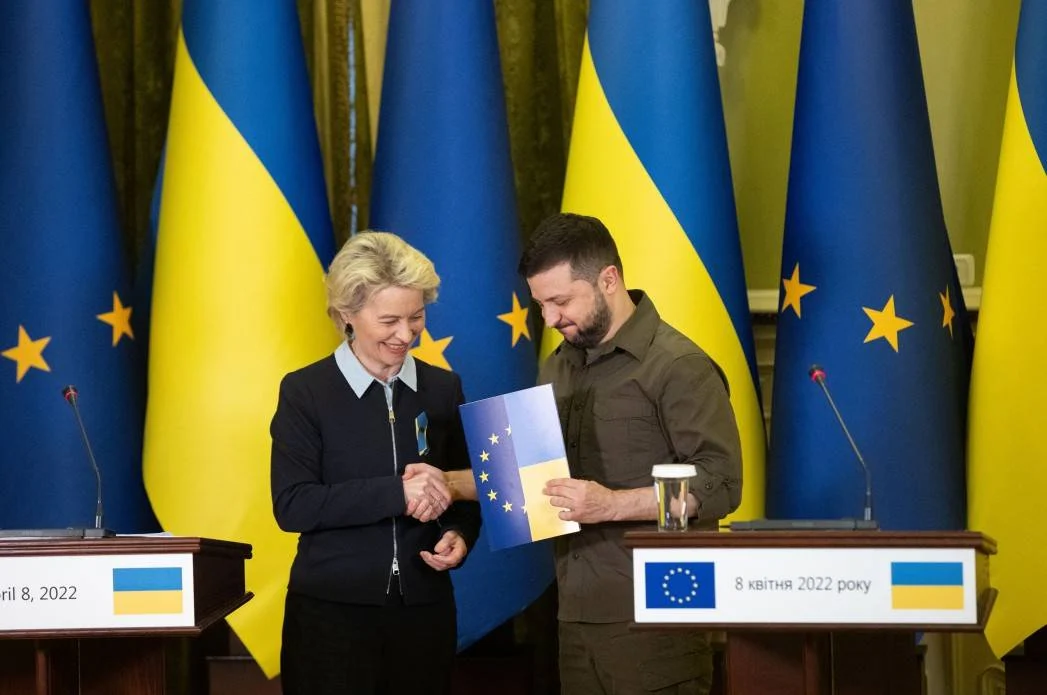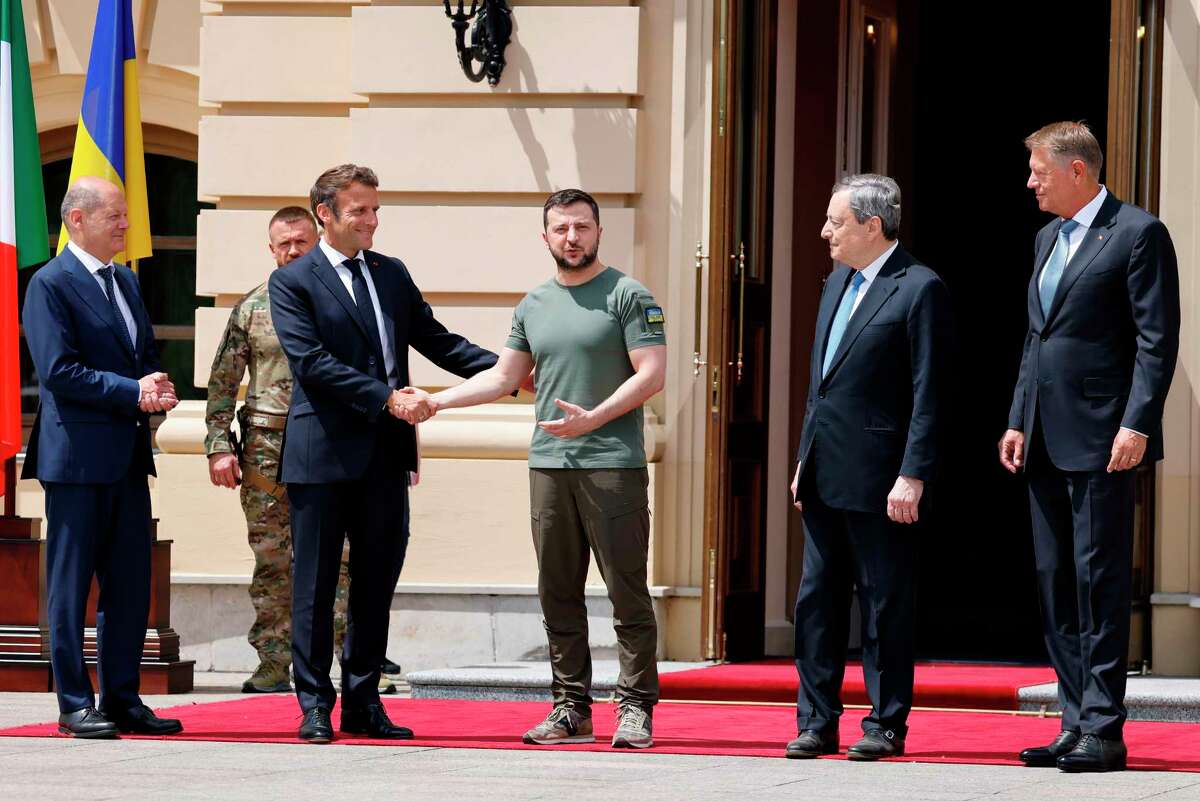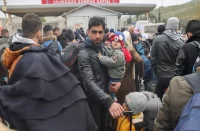At the EU summit on 23-24 June Kiev may receive candidate status in the European Union. This will have little effect on Ukraine itself. However, it may turn out that Russia will become the beneficiary of this decision.
“The aspiration to belong to the European Union has for many years been an important priority for Ukraine, its governments and citizens. It has been an underlying motive for democratic changes over the past decade and a driver of a number of key reforms founded on European values.”
That is how the memo from the European Commission to the European Council and the European Parliament regarding the prospect of granting Ukraine the status of an EU candidate (to be decided at the EU summit on June 23-24) begins. In this document, the European Commission concludes that “Ukraine can be granted candidate status, on the understanding that the following steps are taken”. Among them are judicial reform, further strengthen the fight against corruption (open for public control) and anti-money laundering legislation, implementing the Anti-Oligarch law to limit the excessive influence of oligarchs in economic, political, and public life, and bringing of the Ukrainian laws on mass media and rights of national minorities in accordance with the European standards. If these points are not met, Ukraine will lose its candidate status.
Short-term bonuses
It would seem that status deprivation is inevitable. Ukraine will hardly be able to fight money laundering or reduce the oligarchs’ influence on the economy – after all, the Ukrainian economy itself is based on this. According to any parameters Ukraine is neither suitable for membership in the European Community, nor for candidate status. Total corruption, rampant criminality, oligarchic power and a ruined economy are the characteristics of modern Ukraine. Finally, the current laws that discriminate against the Russian-speaking population can in no way meet the norms of the Venice Commission.

However, essentially, it is not retention that is important to Kiev, but the acquisition of candidate status in itself. This acquisition can be positioned as a crucial short-term victory. Moreover, the short-term nature of the decision suits Europe as well. This status will become a kind of substitute for the next, seventh package of sanctions (which the EU is unlikely to agree on in the near future, given the creak and scandals that accompanied the sixth package). In addition, the European Union felt that Ukraine needed some kind of encouragement. “We have no right after so many weeks of hostilities to tell Ukrainians: ‘Come back later,’” said Emmanuel Macron.
At the same time, both parties understand that membership status is of little practical use. It never guarantees accession to the EU. And it is not even about the complexity of standard procedures (as experts from the Atlantic Council note, there are 8,000 pages of instructions on the reform of legal and trade norms between the candidate and the member).
To date, there are five countries with candidate status (Turkey, Northern Macedonia, Montenegro, Albania, and Serbia). And for at least two of them (Serbia, which has had this status since 2009 and Turkey, which has been in this position since 1987) the prospect of membership has turned into an instrument of pressure by the EU. It is a tool for forcing them to implement the domestic political reforms and foreign policy steps that Brussels wants. Moreover, the list of these reforms and steps is constantly growing, for example, the other day EU representatives said that Serbia for a chance to move from candidacy to membership needs to join the EU sanctions against Russia. In roughly the same way, Ukraine will be teased – or rather, continue to be teased. “We see how for many years this Western community has been manipulating the history of a certain involvement of Ukraine in their integration structures, while, unfortunately, Ukraine is getting worse and worse”, said Russian Foreign Ministry spokeswoman Maria Zakharova. – “Why is this happening? Probably because it is such an absolutely false message, which in practice has nothing good for itself”.
The Medium-Term Costs
The problem for the EU is that in addition to short-term benefits and the ability to manipulate the granting of candidate status to Ukraine has its own costs.
First, Brussels will have to push through a number of EU member states that do not want to vote for granting Ukraine this status. Among those unwilling are Denmark and Austria (whose chancellor advocates the creation of a kind of interim status – a kind of candidate for candidate for membership). In fact, there may be more such states. “Some Western member states who have been in the EU from the start are worried about the balance of power shifting eastwards, where some countries have been backsliding on things like the rule of law in recent years. The European establishment has struggled with both Hungary and Poland playing loose with the EU rules and is learning the hard way that once a country is inside, they can get away with a lot more, CNN wrote. – Other member states are concerned about Ukraine joining the bloc and immediately consuming a huge amount of the EU budget because of the enormous rebuilding exercise that will need to be undertaken. And some simply express concern that getting Ukraine into a long, painful negotiation with the EU is not the best way to support the country at this moment in time”.

Secondly, if granting candidacy status to Kiev and Chisinau, it should also be given to another country that was on its way to the EU in a package with Ukraine and Moldova – Georgia. However, Ursula von der Leyen said that Georgia will not get the status yet – for that the country needs “to achieve political unity and define a clear direction of structural reforms”. That is, simply put, to take the state on the path of direct conflict with Moscow, on which Georgian economy now depends and against which Tbilisi has refused to impose sanctions.
Indeed, Georgia has been pushed to the end of the European queue. Naturally, Georgians are outraged. “If status is determined by war, we don’t want war. We demand the status we deserve,” resents the Georgian Prime Minister Irakli Garibashvili, asserting that his country is “ten times ahead” of Ukraine on the road to European integration. “We understand that Georgia, unlike Moldova and Ukraine, has not made the necessary sacrifices now. But the sacrifice we made and blood we lost 14 years ago (during the August war – ed.), or even 30 years ago (during the civil war – ed.) with 300 thousand internally displaced persons, unfortunately, have lost value for our European partners,” says the leader of the Georgian Dream, Irakli Kobakhidze.
As a result, the European Commission’s decision may lead to even greater disappointment among the Georgian population with the prospects of European integration. And in this case, the main beneficiary of Brussels’ decision to grant Ukraine candidate status will not be Kiev, but Moscow.














Comments